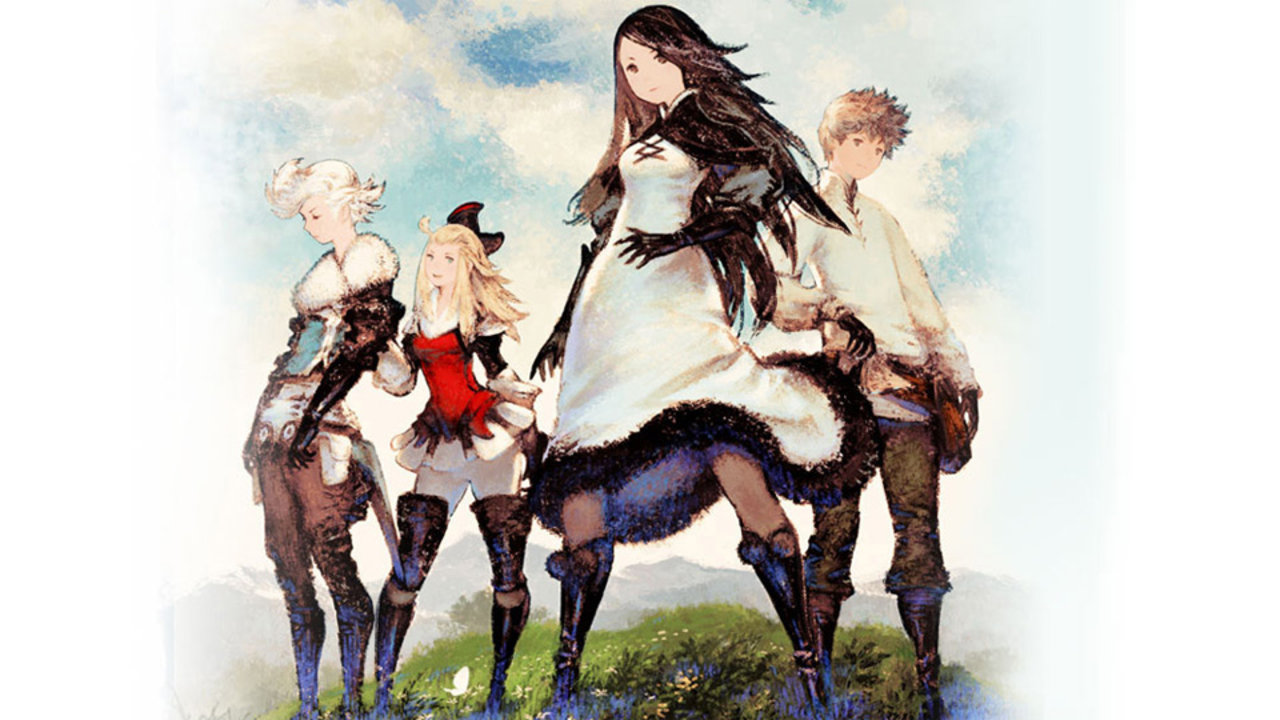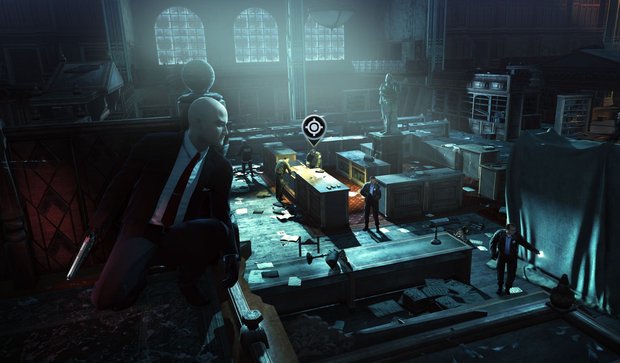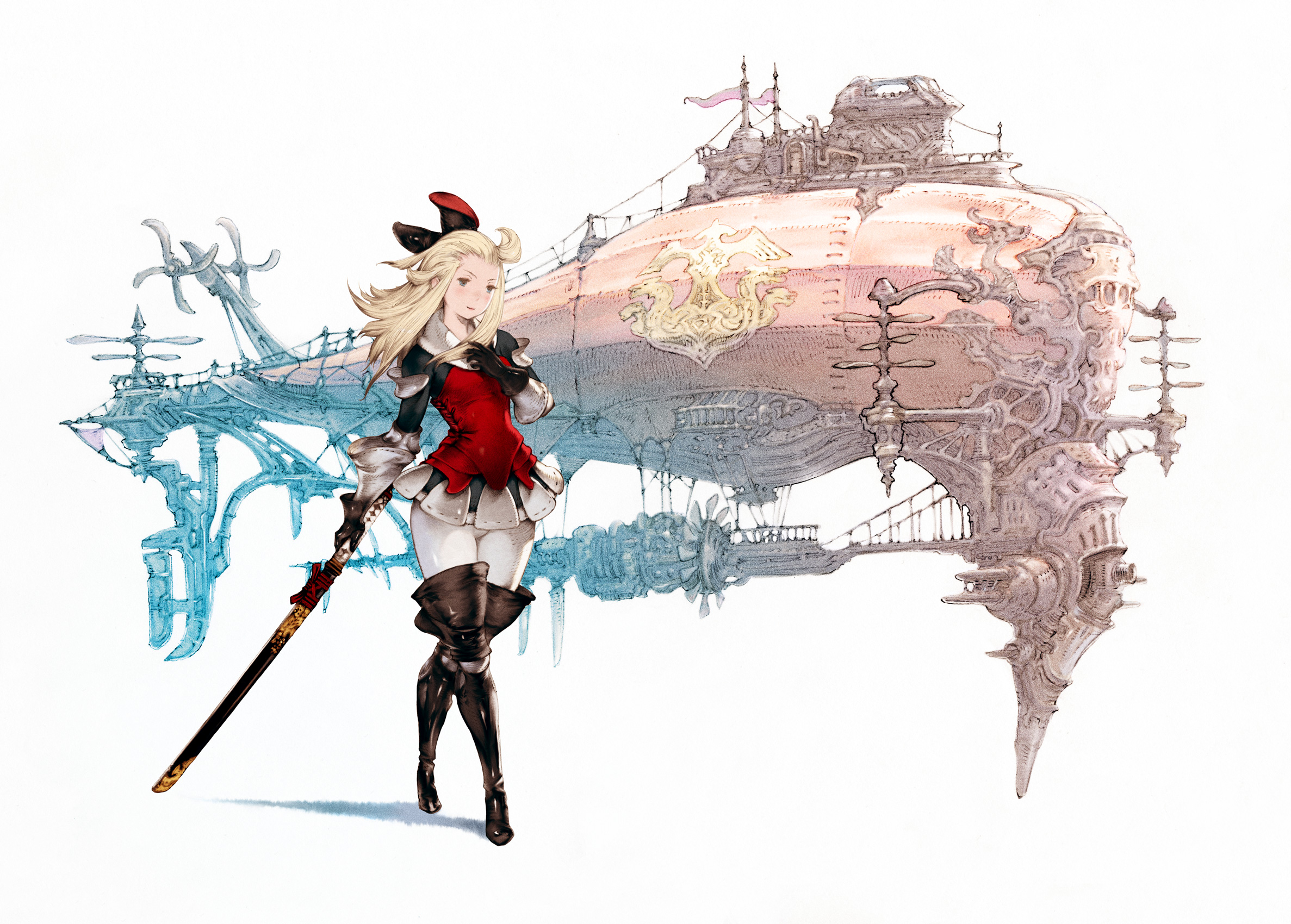Why we need more Bravely Defaults and fewer Hitman: Absolutions
The last couple years have been a major transition period for Japanese gaming, particularly Square Enix. The Tokyo-based company saw the disappointing launches of new Hitman, Final Fantasy, and Tomb Raider games, bumpy transitions to smartphone gaming, and the death and rebirth of its massive MMO. After a huge corporate reshuffling in 2013, the company has come up with a shocking new strategy: focus on its strengths and stop chasing after “global appeal.” It’s a lesson most longtime fans wish the Final Fantasy company had learned almost a decade ago--but there’s still lots of time to make things right.

In a Japanese business interview translated by Siliconera, Square Enix president Yosuke Matsuda mentioned how the Hitman: Absolution team “implemented a vast amount of ‘elements for the mass’ instead of for the core fans, as a way to try getting as many new players possible... However, what makes the Hitman series good is its appeal to core gamers… which ended up making it struggle in sales.” I’m not sure why this was news to Matsuda, because the 360/PS3 generation is filled with instances of Square Enix repeating the exact same mistake over and over again.
Remember games like MindJack, Infinite Undiscovery, or The Last Remnant? It’s tough, because they were so forgettable. None were out-and-out terrible, but they all focused on pleasing the mythical beast known as the mainstream gamer by sacrificing good design. One of the silliest examples of this wrongheadedness is Front Mission Evolved, a largely ignored 2010 title that remade the hardcore strategy series as a painfully average third-person shooter. Front Mission was never that big in the US, but such a middling change failed to discover a new audience, while simultaneously alienating the established fanbase.

So why was Hitman: Absolution the game that finally convinced Square Enix, and not the dozen other games that preceded it? Perhaps it’s because Hitman was internally developed in the West, and the Japanese higher-ups are starting to listen to the former Eidos teams more. The Tomb Raider reboot, originally seen as underperforming by Square, has gone on to become profitable, demonstrating that the Tokyo bosses misjudged the game’s popularity. Or perhaps it all goes back to the games Square Enix develops for its Japanese audience.
As Matsuda puts it, “...when we developed console games with a worldwide premise, we lost our focus, and not only did they end up being games that weren’t for the Japanese, but they ended up being incomplete titles that weren’t even fit for a global audience.” (It’s nice to see Japan and the west rejected those games equally.) Matsuda continued, "On the other hand, there are games like the JRPG we made for the Japanese audience with the proper elements, Bravely Default, which ended up selling well all around the world.” Again, making something too mainstream hurt the title overall, while a game aimed at a specific group ended up having greater appeal than they expected. Y'know, just like what happened with every Square release of the 1990s.

In the interview, Bravely Default’s success in the US/EU regions seems like a genuine surprise to Mr. Matsuda. The retro-flavored RPG wasn’t even published by Square Enix, leaving it to Nintendo to deal with localization and marketing--and it went on to sell 200,000 copies in North America alone. Those kinds of sales for a new Call of Duty or Assassin’s Creed would be considered a failure--but for a smaller genre on a handheld, 200K sales is an outstanding first month. And it goes against the “global appeal” way of thinking that's been hurting Square Enix for so long.
The last few years have seen Square attempting to update its JRPGs to gain more Western fans, all while saving the more traditional titles for the Japanese base. Games like Final Fantasy Type-0 and no less than five major Dragon Quest releases have yet to be localized, and Bravely Default likely would’ve met with the same fate if not for Nintendo publishing it. This reluctance with exporting JRPGs is befuddling to me--because these types of games are what made the Square brand internationally famous in the first place.
Sign up to the GamesRadar+ Newsletter
Weekly digests, tales from the communities you love, and more

As an outsider that loves these types of games, it’s frustrating that it took Square Enix so long to see the mistake in developing compromised games for a nonexistent audience. But if the success of Bravely Default teaches the company to get back to basics--relying on its strengths instead of handcuffing itself with assumptions about what the mainstream wants--then I say better late than never. Now, the real question is: When will I get Dragon Quest VII for 3DS?!
Henry Gilbert is a former GamesRadar+ Editor, having spent seven years at the site helping to navigate our readers through the PS3 and Xbox 360 generation. Henry is now following another passion of his besides video games, working as the producer and podcast cohost of the popular Talking Simpsons and What a Cartoon podcasts.



